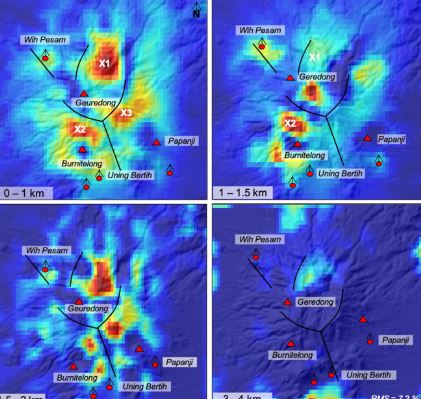Avanzando Equidad de Salud: Latino Cancer Health Equity Research Center (LCHERC)
|
PI Name: David Akopian
Sponsor: Univ of TX HSC at San Antonio 745
Total Funding: $168000
|

SCNS Lab of UTSA (Director: David Akopian)will implement a mobile app to help UTHSA conduct the following study:
Hormonal therapy (HT) is highly effective and appropriate for nearly all breast cancer patients with hormone receptor-positive tumors, which represent 75% of all breast cancer diagnoses. Long-term use of HT reduces cancer recurrence rates and cuts the risk of death nearly in half during the second decade after diagnosis. Despite the proven benefits, about 33% of women who are prescribed HT do not take their medication as prescribed (less than 80% take their daily dosage) and are thus at higher risk of recurrence and death. In particular minority women
The goal of this educational randomized controlled study is to assess the effectiveness of the HT Helper app, a bilingual, culturally tailored, personalized, interactive mobile application (app) in combination with patient navigation including SDoH screening and guidance to promote and improve adherence to hormonal therapy (HT) among Latina breast cancer patients experiencing SDOH such language barriers, low-income, lack of health insurance and low-education/health literacy.
This theory-based intervention emphasizes the importance of increasing patient education, enhancing self-efficacy, facilitating communication with the medical team and helping patients to develop self-care skills to promote optimal adherence to hormone therapy to ensure that all patients experience the best treatment outcomes possible, including improvement in quality of life, overall survival and life expectancy.
The proposed 4 year study involves a 3-group randomized controlled trial with 3-time assessments (baseline, 6 and 12 months) and will enroll 159 breast cancer patients who are prescribed HT and are attending the breast clinic at the Mays Cancer Center (MCC), a National Cancer Institute-designated cancer center at UT Health San Antonio. Group 1 will receive two components: 1) the bilingual, culturally tailored, personalized, interactive HT Helper mobile app; and 2) support from a patient navigator. Group 2 will receive support from a patient navigator only, and Group 3 will receive the usual care and information provided by the MCC's breast clinic to patients undergoing oral HT. The intervention components are based in Social Cognitive Theory and elements of Motivational Interviewing.
This innovative interactive, mobile-based and multi-communication intervention could result improvements in breast cancer outcomes by reducing recurrence, improving quality of life, overall survival and life expectancy among Latinas and other underserved breast cancer patients.
Natural Hazards Engineering Research Infrastructure: Network Coordination Office 2021- 2025
|
PI Name: JoAnn Browning
CO-PD/PI: Karina Ivette Vielma
Sponsor: Purdue Univ
Total Funding: $1341400
|

This proposal is part of the Purdue renewal.
Calibrating satellite data with ground environmental metrics: A pilot in San Antonio's historic westside
|
PI Name: Esteban Lopez Ochoa
CO-PD/PI: Angela Lombardi, Ryun Jung Lee and Wei Zhai
Sponsor: UTSA VPR Office
Total Funding: $50000
|

This project aims to develop new calibrated Land Surface Temperature (LST) data by combining the power of remote sensing and satellite imagery currently provided by NASA with on the ground sensors. A second objective of this proposal is to use the new calibrated LST data to explore its gains in uncovering environmental injustices related with heat. We propose focusing on San Antonio's Historic Westside neighborhood (HWS) as a case of study to better understand a) our method reliability to different data collection and modelling approaches, b) the impact of the built environment in heat production and socioeconomic costs, and c) what lessons can be drawn to extend the analysis to the city as a whole?
This proposal responds to the climate justice urban challenge by choosing to examine the production of heat in one of the most affected neighborhoods in the city. As environmental justice strives for having all people and communities equally protected and participating of environmental and public health laws and regulations [1], this proposal's will investigate the causal mechanisms though which heat impose an unjust burden in the HWS. Our main hypothesis is that lower income neighborhoods experience unjust levels of heat due to poor and ill-prepared built environment in the form of a disproportioned number of impervious surfaces and lack of vegetation. Heat generated from non-green urban development can be considered as an externality from poor and cost-saving urban investment decisions. Low-income neighborhoods like the HWS have been subject of urban disinvestment for years and are likely to be suffering the costs from non-green urban development.
The UTSA team will oversee a) quantifying heat production based on the classification of urban spaces into Local Climate Zones (LCZs), and explaining energy consumption conditional physical built environment; and b) conduct an experimental design approach to gather ground temperature and air pollution measurements from the HWS neighborhood. The SwRI team will use the UTSA provided information to develop a numerical model to predict detailed spatiotemporal distributions of the felt environment that would calibrate Land Surface Temperatures (LST) from satellite imagery to better represent ambient temperatures and overall thermal comfort.
An important underlying goal of the project is to develop and disseminate timely and actionable information to the community and organizations engaged in climate-related adaptation in the San Antonio area, to promote equitable adaptation measures. UTSA and SwRI are both located on the west side of San Antonio, which has suffered from pervasive patterns of racial segregation, redlining, educational neglect, and political disenfranchisement. The results of this study are expected to help quantifying the extent of the problem and alleviating decades of climate injustice.
This proposal responds to the climate justice urban challenge by choosing to examine the production of heat in one of the most affected neighborhoods in the city. As environmental justice strives for having all people and communities equally protected and participating of environmental and public health laws and regulations [1], this proposal's will investigate the causal mechanisms though which heat impose an unjust burden in the HWS. Our main hypothesis is that lower income neighborhoods experience unjust levels of heat due to poor and ill-prepared built environment in the form of a disproportioned number of impervious surfaces and lack of vegetation. Heat generated from non-green urban development can be considered as an externality from poor and cost-saving urban investment decisions. Low-income neighborhoods like the HWS have been subject of urban disinvestment for years and are likely to be suffering the costs from non-green urban development.
The UTSA team will oversee a) quantifying heat production based on the classification of urban spaces into Local Climate Zones (LCZs), and explaining energy consumption conditional physical built environment; and b) conduct an experimental design approach to gather ground temperature and air pollution measurements from the HWS neighborhood. The SwRI team will use the UTSA provided information to develop a numerical model to predict detailed spatiotemporal distributions of the felt environment that would calibrate Land Surface Temperatures (LST) from satellite imagery to better represent ambient temperatures and overall thermal comfort.
An important underlying goal of the project is to develop and disseminate timely and actionable information to the community and organizations engaged in climate-related adaptation in the San Antonio area, to promote equitable adaptation measures. UTSA and SwRI are both located on the west side of San Antonio, which has suffered from pervasive patterns of racial segregation, redlining, educational neglect, and political disenfranchisement. The results of this study are expected to help quantifying the extent of the problem and alleviating decades of climate injustice.

